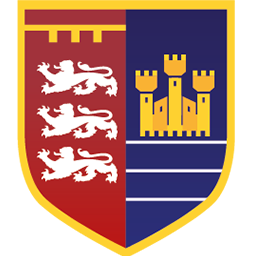History
'The more you know about the past, the better prepared you are for the future.'
Theodore Roosevelt
Curriculum Intent
We believe all students deserve a History curriculum that is ambitious and rich in knowledge. In line with the Trusts vision, we want all young people to ‘make outstanding progress’ through a history curriculum that aims to equip students to understand the complexity of people’s lives, the process of change, the diversity of societies and the relationships between different groups, as well as the significance of events throughout the course of history so students appreciate where we have been, where the world is moving towards and how we can learn from the mistakes of the past.
Careful consideration has been, and continues to be, put into developing the History curriculum; the curriculum is taught chronologically because we feel this is integral to building pupils chronological framework of the past and their sense of period. The curriculum spirals and is planned and sequenced so that new component knowledge and skills build on what has been previously taught; the curriculum is centred on four themes: ‘Life, Work and Religion’, ‘Health and Medicine’, ‘Power and Control’ and ‘War and Conflict’. Students will learn how Britain and the wider world has developed and there is a focus on local and women’s history. As students progress throughout the curriculum they will develop an understanding of key second order concepts such as, chronology, change and continuity, cause and consequence and source and interpretation analysis. Revisiting key concepts areas throughout years 7 -11 is routine.
Students will be taught units of work that cover and go beyond the requirements of the national curriculum and this should enable students to: study issues at a local, national and international level in Medieval, Early Modern and Modern time periods. This allows students to:
- Understand Britain’s influence on the wider world,
- Study the history and influence of different peoples and places across time,
- Assess the impact of events on individual and communities,
- Be exposed to a high level of historical and conceptual vocabulary,
- Learn to interpret a broad range of sources including visual sources and propaganda,
- Be exposed to different peoples’ perspectives on issues and events,
- Develop an understanding of how to apply and write about historical concepts such as causation; continuity and change; significance; consequence; diversity,
- Challenge received wisdom about historical figures and issues,
- Develop confidence in orating and debating historical issues and evaluate historical interpretations.
History has an important role in developing students’ cultural capital. Studying history helps shape students’ sense of identity by giving them an opportunity to understand and discuss the impact of how Britain was formed by its history and the society we live in.
Some examples of key issues that are discussed are: the legacy of the British Empire and the slave trade, the formation of the welfare state and taxation, the fragility of democracy and the relationship between rulers and people.
Curriculum Content
Each department has carefully developed curriculum plans in line with our curriculum intent. The curriculum overview for each year group in this subject can be found below.


